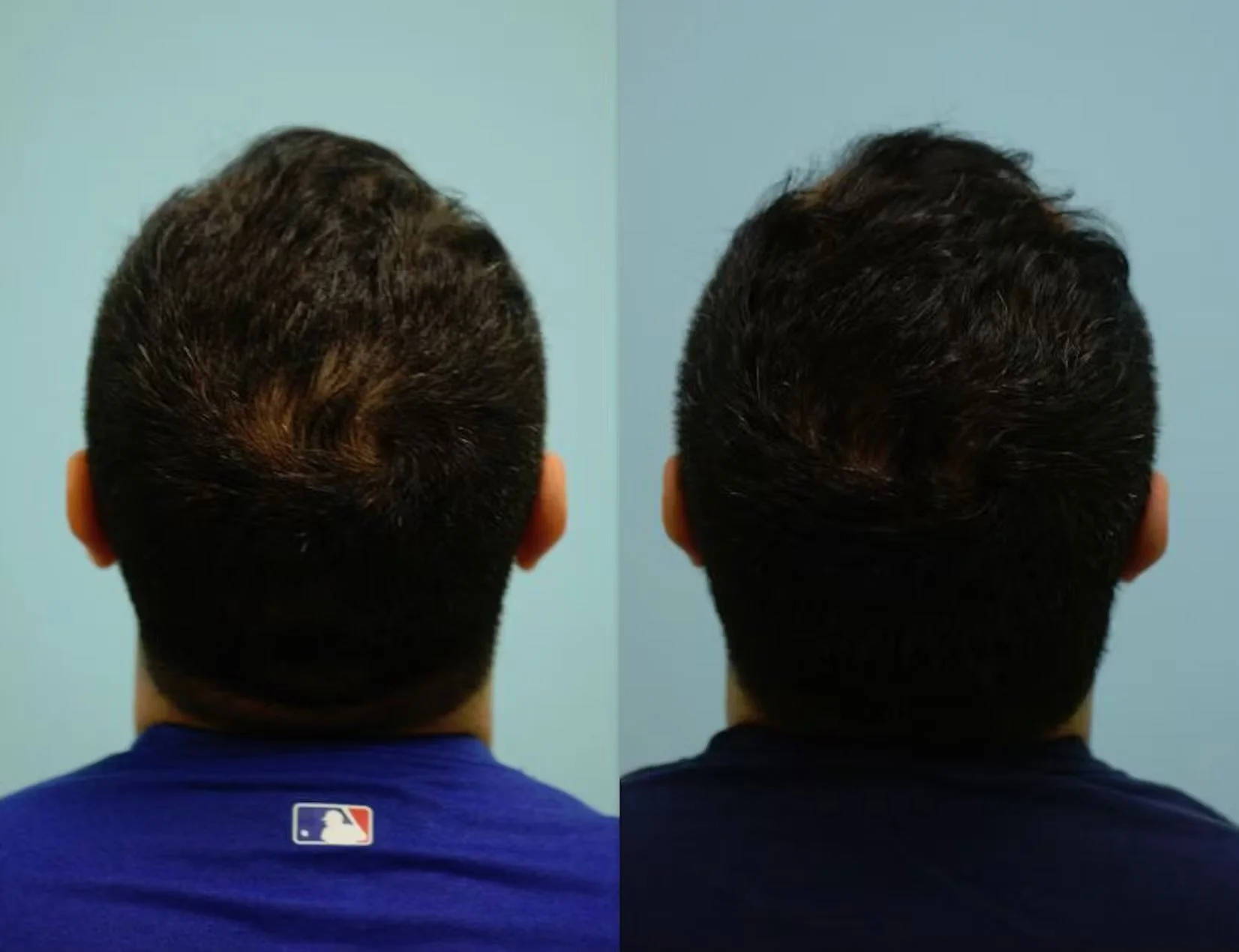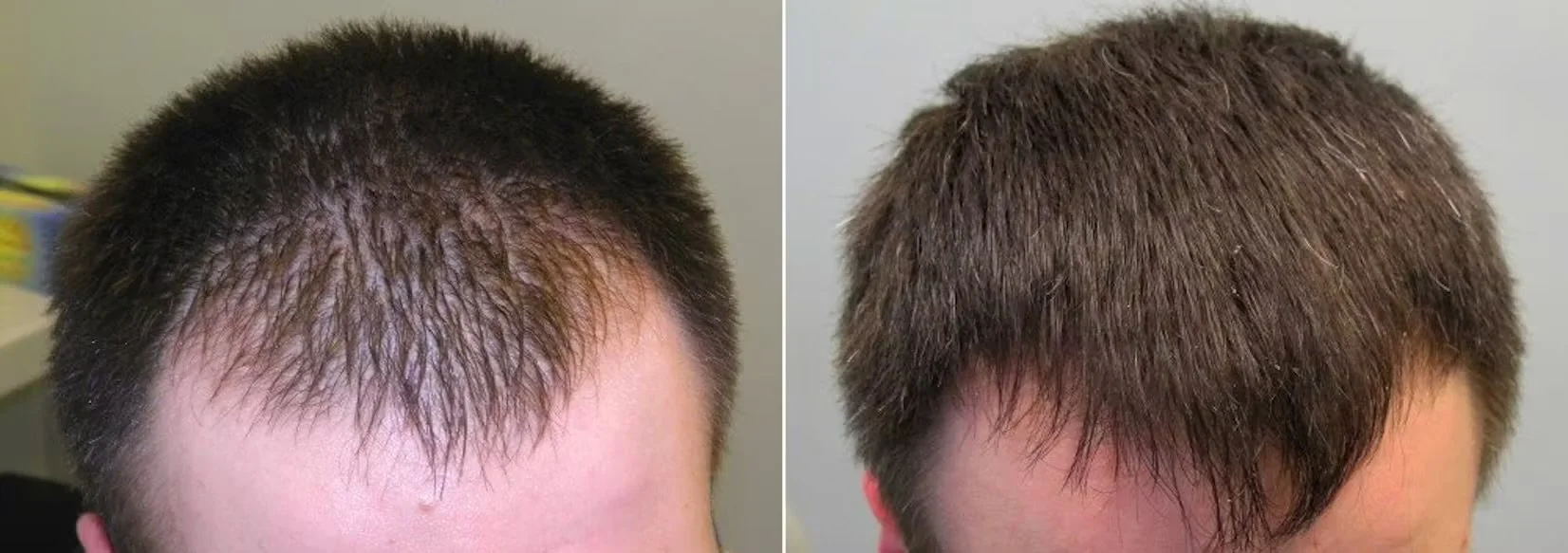Evidence-Based Hair Loss Treatments
Hair loss is a common concern affecting millions of men and women worldwide. Whether due to genetics, hormonal changes, stress, or underlying medical conditions, hair thinning and baldness can impact confidence and self-esteem. At TheraVita Health, we are committed to providing evidence-based treatments to help you regain control over your hair health. We are excited to introduce our new hair loss treatment service, offering expert consultations and clinically proven solutions to support hair regrowth and prevent further loss.
Understanding Hair Loss: Causes and Types
Hair loss, also known as alopecia, can occur for various reasons, including:
Androgenetic Alopecia (Male & Female Pattern Baldness): The most common type of hair loss, caused by genetics and hormonal changes. It affects nearly 50% of men over 50 and up to 38% of women over 70 (Blume-Peytavi et al., 2011).
Telogen Effluvium: Temporary hair shedding due to stress, illness, or medication. Common triggers include childbirth, severe infections, major surgery, and iron deficiency (Malkud, 2015).
Alopecia Areata: An autoimmune condition that leads to sudden hair loss in patches, affecting approximately 2% of the global population (Gilhar et al., 2012).
Traction Alopecia: Hair thinning from prolonged tension on the hair, often due to tight hairstyles such as braids, ponytails, or extensions (Billero & Miteva, 2018).
Nutritional Deficiencies: A lack of essential vitamins and minerals such as iron, biotin, and vitamin D can contribute to hair thinning. Studies suggest that low iron levels are linked to increased hair shedding (Rushton, 2002).
Evidence-Based Treatments for Hair Loss
The good news is that clinically proven treatments are available to manage hair loss effectively. At TheraVita Health, we offer personalised consultations and prescriptions for scientifically backed hair loss treatments, ensuring you receive the best care possible.
1. Prescription-Strength Medications
Finasteride (for men only)
Finasteride is an oral medication that works by blocking dihydrotestosterone (DHT), the hormone responsible for male pattern baldness.
Clinical trials have shown that finasteride can reduce hair loss and promote regrowth in up to 90% of men (Kaufman et al., 1998).
Long-term studies indicate sustained benefits with continued use, with 48% of men experiencing visible improvement after five years (Leyden et al., 2004).
Topical Minoxidil (for men and women)
Minoxidil is a topical treatment that stimulates hair follicles and prolongs the growth phase of hair.
Research shows that 60-70% of users experience improved hair growth with consistent use (Olsen et al., 2002).
A meta-analysis found that 5% minoxidil was significantly more effective than the 2% formulation in promoting regrowth in men (Suchonwanit et al., 2019).
2. Lifestyle and Nutritional Support
Protein-Rich Diet: Hair is primarily made of keratin, a protein, so consuming adequate protein supports healthy hair growth (Gavazzoni Dias, 2015).
Vitamins & Supplements: Biotin, vitamin D, and iron are essential for maintaining strong, healthy hair.
Reducing Stress: Chronic stress can trigger hair loss; mindfulness techniques and regular exercise can help (Hadshiew et al., 2004).
3. Advanced Treatments
Low-Level Laser Therapy (LLLT)
Some evidence suggests that laser devices can stimulate hair follicles and improve hair growth in early-stage hair loss.
A study found that LLLT increased hair density in both men and women compared to a placebo (Avci et al., 2014).
Platelet-Rich Plasma (PRP) Therapy
PRP involves injections of your own platelet-rich plasma to stimulate follicle activity and improve hair growth.
Clinical studies suggest that PRP improves hair count and thickness in patients with androgenetic alopecia (Gentile et al., 2015).
New Hair Loss Consultation Service at TheraVita Health
We are thrilled to introduce our Hair Loss Consultation Service, designed to provide expert guidance and tailored treatment plans. For just £76.95 per consultation, we offer:
A comprehensive hair loss assessment with a trained prescriber.
A personalised treatment plan based on clinical evidence.
A 3-month prescription and delivery included (if eligible for treatment).
Our approach is rooted in science and patient safety, ensuring that you receive effective and evidence-based care for your hair concerns.
Book Your Consultation Today
If you’re experiencing hair loss and looking for a trusted, expert-led treatment plan, TheraVita Health is here to help. Take the first step toward restoring your confidence and achieving healthier hair.
Book your consultation today and start your journey to thicker, fuller hair with TheraVita Health!
See below for some before and after photos of improved hair loss with finasteride 1mg after less than a year.
References
Avci, P., Gupta, G. K., Clark, J., et al. (2014). Low-level laser (light) therapy (LLLT) for treatment of hair loss. Lasers in Surgery and Medicine, 46(2), 144-151.
Billero, V., & Miteva, M. (2018). Traction alopecia: The root of the problem. Clinical, Cosmetic and Investigational Dermatology, 11, 149-159.
Blume-Peytavi, U., Hillmann, K., Guarrera, M., et al. (2011). Hair growth disorders. JDDG: Journal of the German Society of Dermatology, 9(8), 590-595.
Gentile, P., Garcovich, S., Bielli, A., et al. (2015). The effect of platelet-rich plasma in hair regrowth: A randomized placebo-controlled study. Stem Cells Translational Medicine, 4(11), 1317-1323.
Gilhar, A., Etzioni, A., & Paus, R. (2012). Alopecia areata. New England Journal of Medicine, 366(16), 1515-1525.
Hadshiew, I. M., Foitzik, K., Arck, P. C., & Paus, R. (2004). Burden of hair loss: Stress and the underestimated psychosocial impact of telogen effluvium and androgenetic alopecia. Journal of Investigative Dermatology, 123(3), 455-457.
Kaufman, K. D., Olsen, E. A., Whiting, D., et al. (1998). Finasteride in the treatment of men with androgenetic alopecia. Journal of the American Academy of Dermatology, 39(4), 578-589.
Leyden, J., Dunlap, F., Miller, B., et al. (2004). Finasteride in the treatment of men with androgenetic alopecia. Journal of Cutaneous Medicine and Surgery, 8(3), 156-162.
Malkud, S. (2015). Telogen effluvium: A review. Journal of Clinical and Diagnostic Research, 9(9), WE01-WE03.
Olsen, E. A., Hordinsky, M., Whiting, D., et al. (2002). The importance of dual 5α-reductase inhibition in the treatment of male pattern hair loss. Journal of the American Academy of Dermatology, 47(3), 377-385.
Rushton, D. H. (2002). Nutritional factors and hair loss. Clinical and Experimental Dermatology, 27(5), 396-404.




